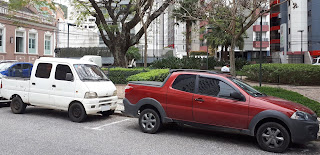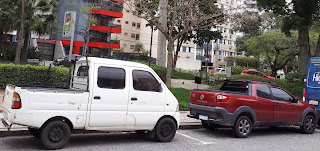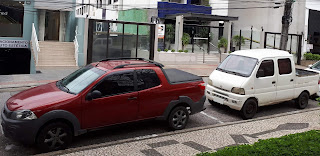Small bakkies are a popular option for those who are looking out for a commercial vehicle with a lower total cost of ownership in countries such as Brazil, where traditional automakers with a strong foothold such as Fiat (now a Stellantis division) have a consolidated presence in this segment. Even though there has been a competition from Chinese automakers since 2007, when copies of the Suzuki Carry made by Changan were the first official imports of vehicles made in China to Brazil, the conservative profile of most Brazilian car buyers meant these ended up having a smaller appeal and strictly among commercial operators who were more concerned about the lower purchase price than anything else. The availability of replacement parts is often neglected by importers of those Chinese bakkies for instance, leading their owners into resorting to adaptations with components of some more mainstream model, yet a live-axle rear-wheel drive layout and body-on-frame design already lends itself better to some makeshift fixes.
In favour of the car-based designs more sought after in Brazil, which despite being mostly based upon a front-wheel drive unibody such as the Fiat Strada end up resembling an Australian coupé-utility, there is usually a better overall performance due to the fitment of engines better suited to deal with the GVWR, in contrast to the often underpowered copies of some random outdated Japanese engine and extremely low gearing often found on those Chinese copies of the Suzuki Carry. While the unibody doesn't render a Brazilian coupé-utility so easy to replace the stock rear tray for a task-specific bodywork compared to a body-on-frame, and the front-wheel drive is more affected by changes to the weight bias when loaded, the Fiat Strada often leads the commercial vehicle sales ranking in Brazil, not only among urban buyers who might prefer a smoothier ride but also for agribusiness-related duties. In the end, while commercial operators may become attracted to the cheap Chinese Suzuki copy at a first glance, the Brazilian coupé-utility is more cost-effective.



No comments:
Post a Comment
Only comments written in English are published. Not so rigid about the grammar, but some regional slang should be avoided to make it clear and easily understandable.